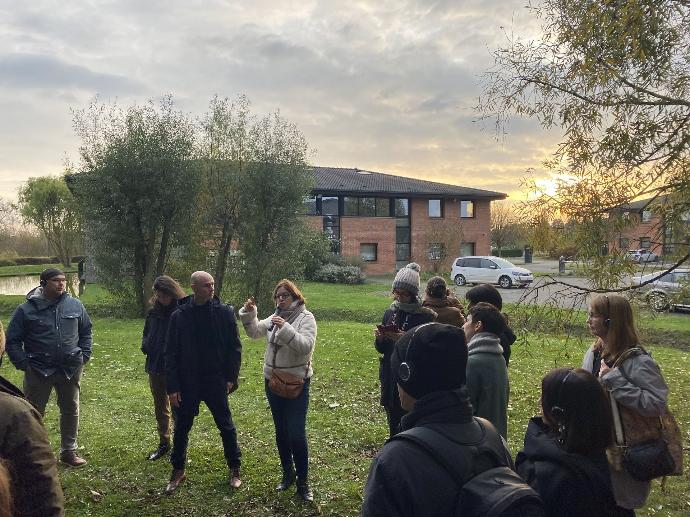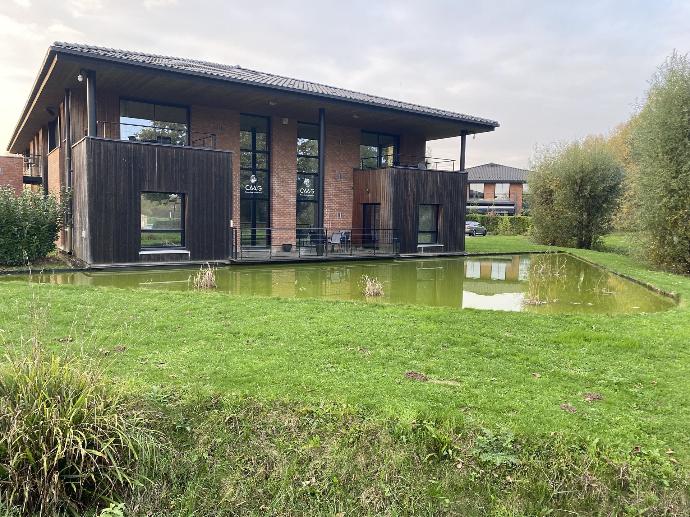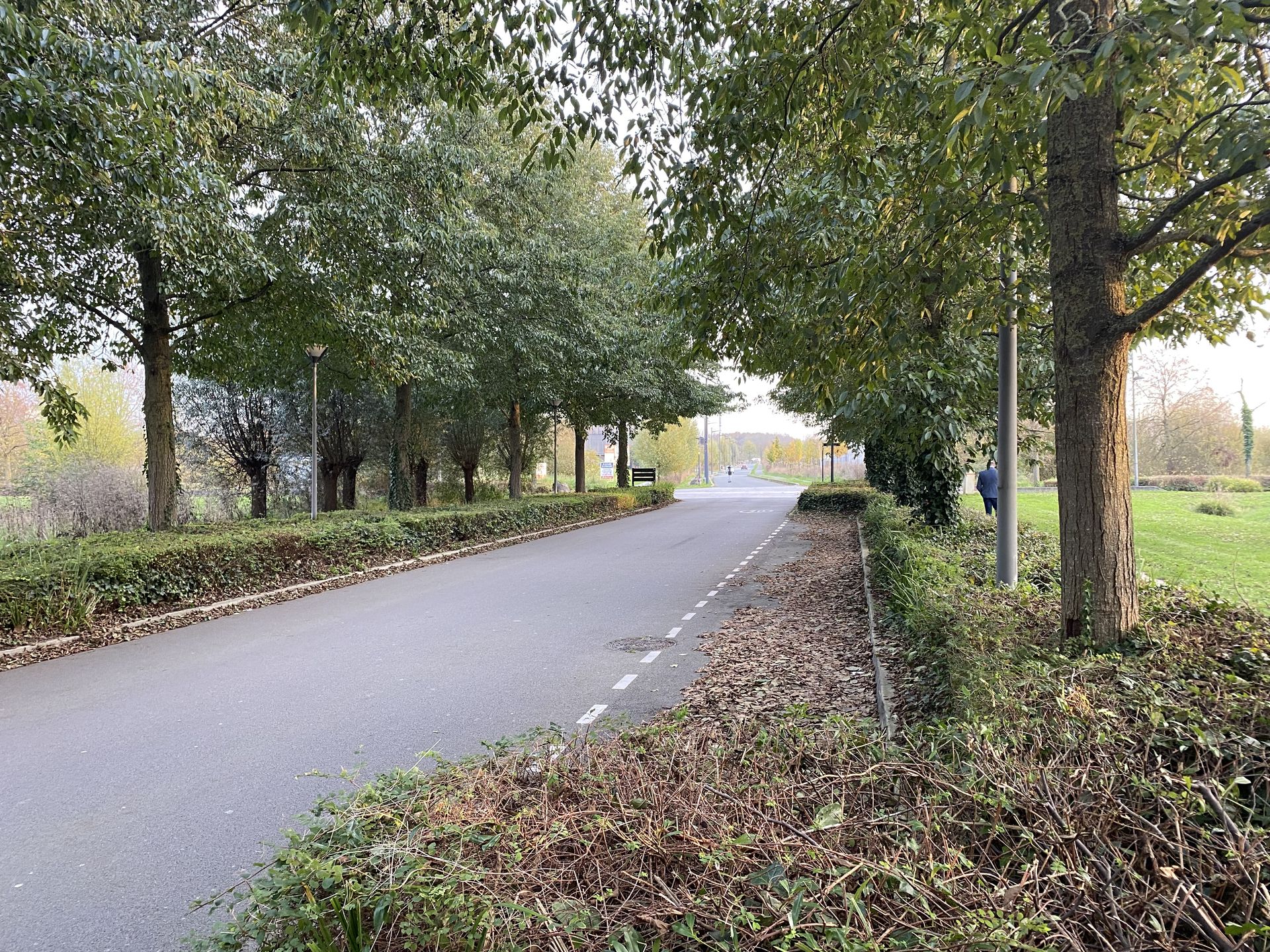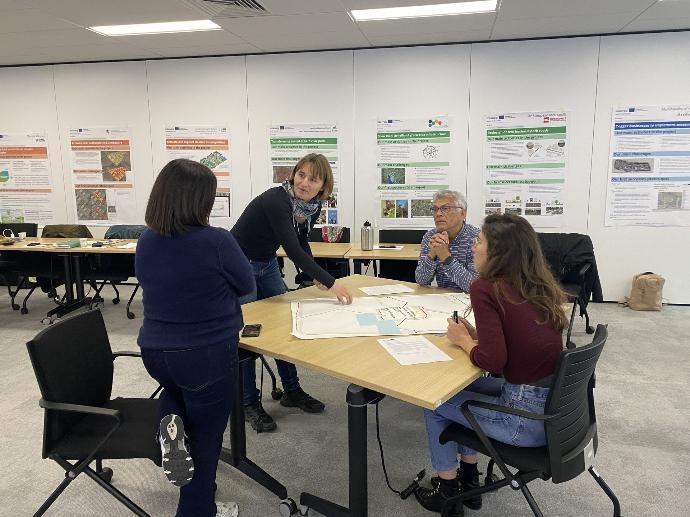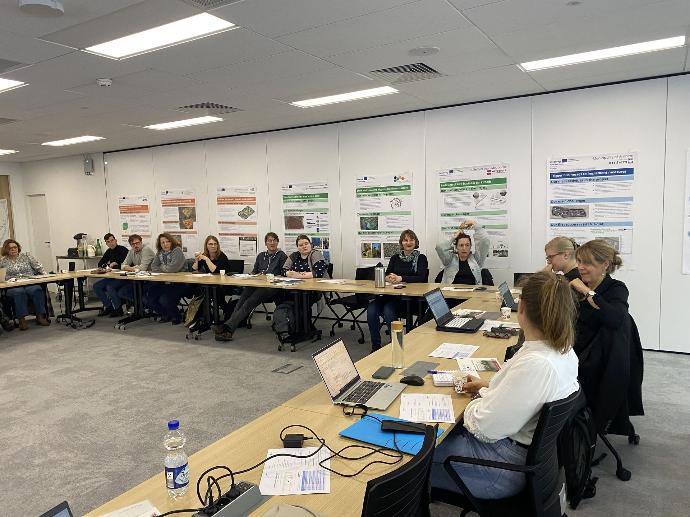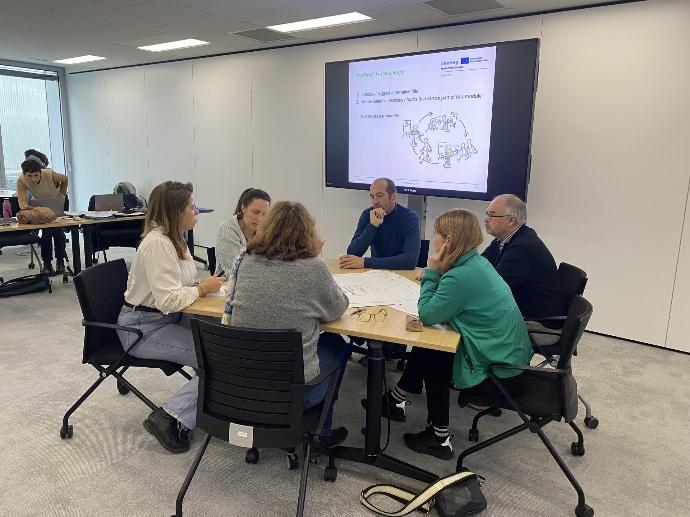On 13 November 2024, IB-Green hosted the public conference “Fit for future - companies putting climate adaptation into practice” in Lille, France. The so-called “midterm conference”, because it marks the halftime of projects financed by Interreg North-West Europe, was hosted by IB-Green project partner Lille European Metropolis.
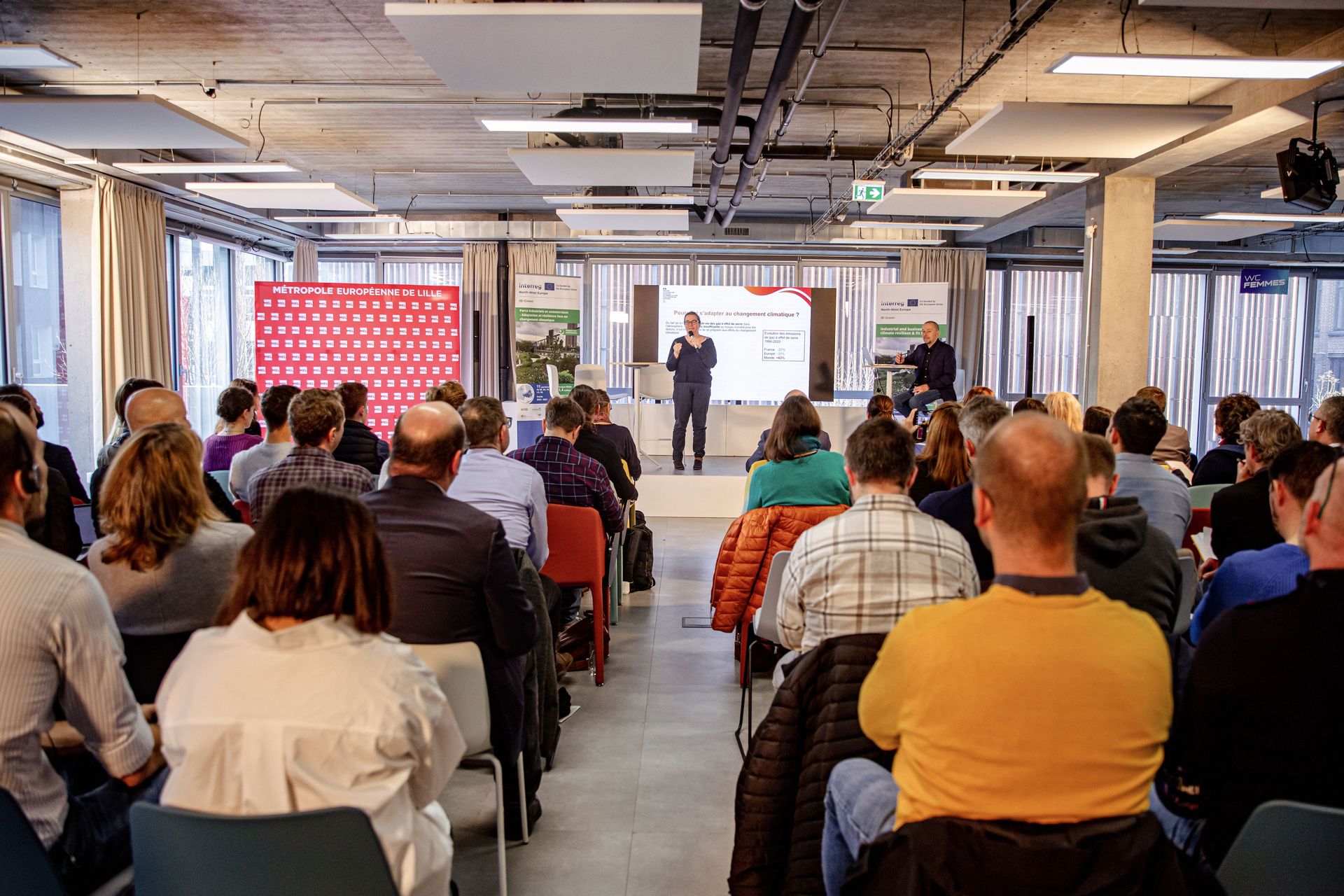
(c) Photo: Lille European Metropolis
The conference was kicked-off with an important insight: Not just adaptation or mitigation measures have a cost – inaction is also costly. According to Marie Carrega (French Ministry of Ecological Transition) the costs for damages linked to effects of climate change in France will double by 2050 (to a total of 143 billion € between 2020 and 2050) if no measures, such as climate adaptation activities are implemented.
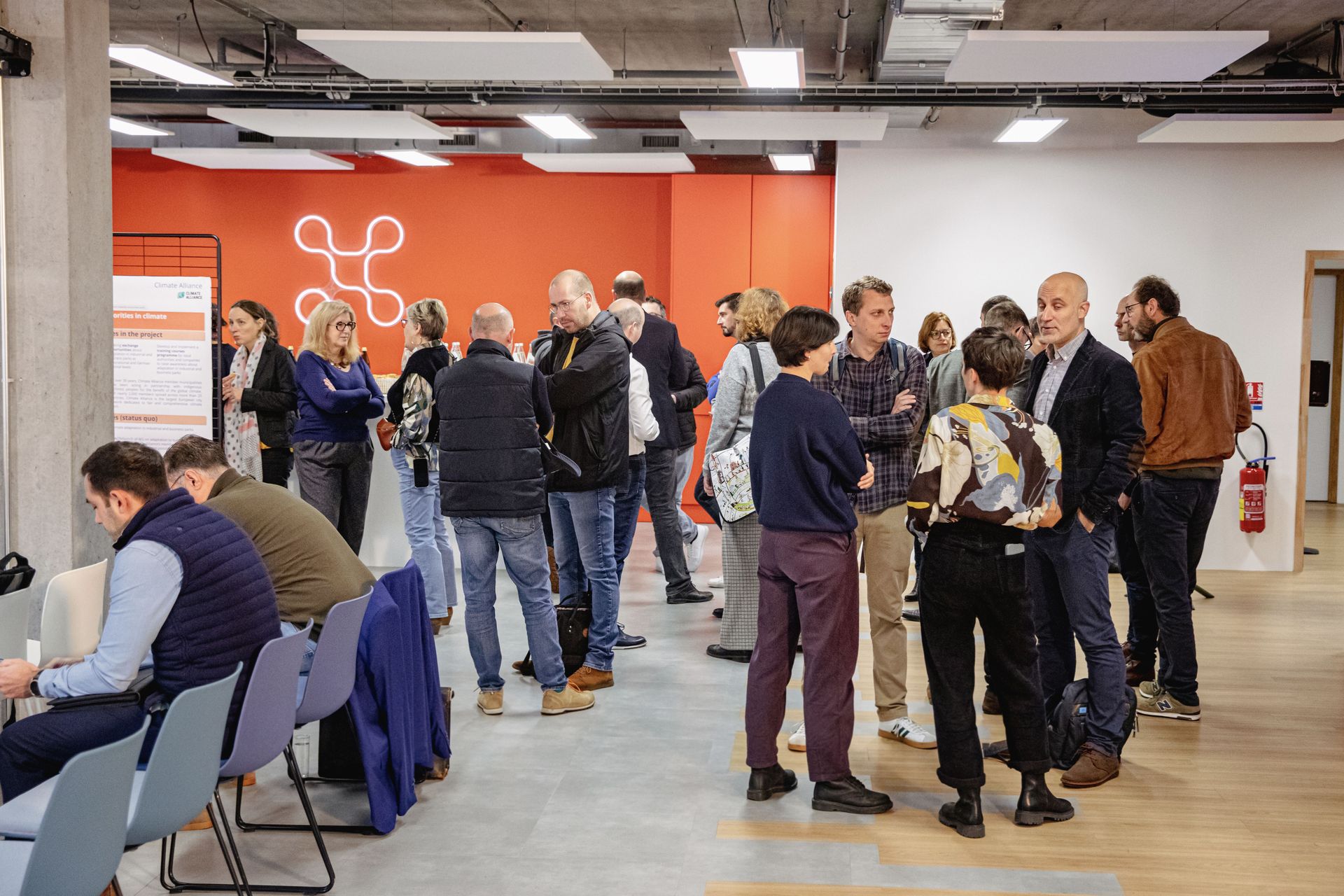 (c) Photo: Lille European Metropolis
(c) Photo: Lille European Metropolis
To find inspiration on climate adaptation and inspire others to get into action, the conference brought together different stakeholders to give them the opportunity to exchange, of course also with the IB-Green project partners, about how to overcome challenges regarding climate adaptation measures.
"Business parks are part of our everyday life - where people live or commute. It is necessary to find durable and sustainable solutions for them."- David Grzegorzewski, Programme Director Interreg North-West Europe
Mathieu Corbillon, delegated metropolitan councilor for business parks at Lille European Metropolis, highlighted the negative impact that climate change is already having: For instance, floods in the vicinity of Lille had a negative impact on value chains of numerous companies. Lille European Metropolis has developed a charter on how public space can be improved and nature taken more into account.
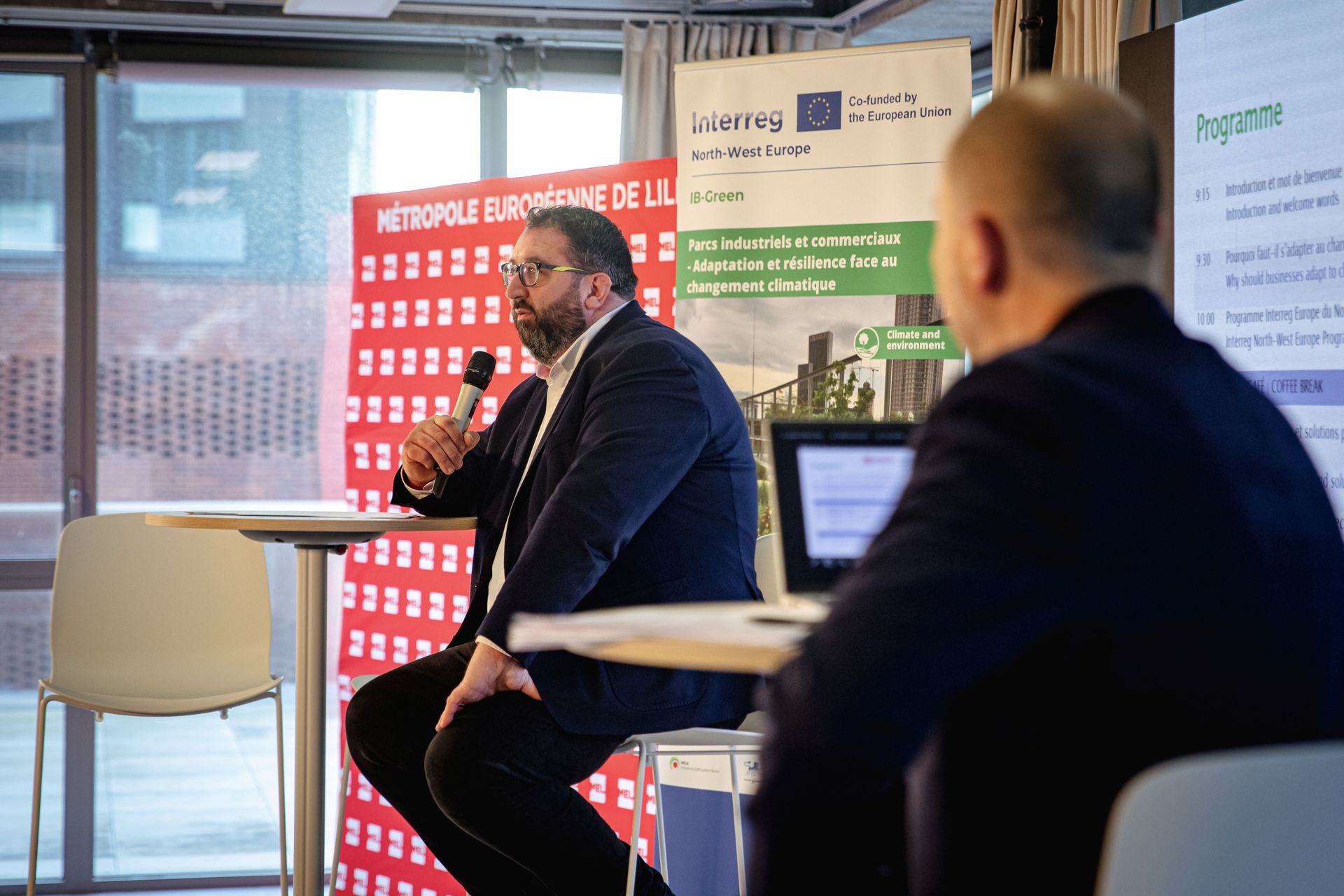 (c) Photo: Lille European Metropolis
(c) Photo: Lille European Metropolis
The metropolis is already taking steps to implement
this charter, for example by including more vegetation in public spaces against
heat stress or using innovative materials to improve the water infiltration.
Another example for climate adaptation action on a municipal level is the city of Singen Hohentwiel in Germany, who is also a project partner of IB-Green. In Singen, due to the municipalities’ history, the industrial area is located in the city center, instead of on the outskirts of the city. As a consequence, problems related to a high level of sealing in business parks such as vulnerability to heat stress, directly impact the heart of the city.
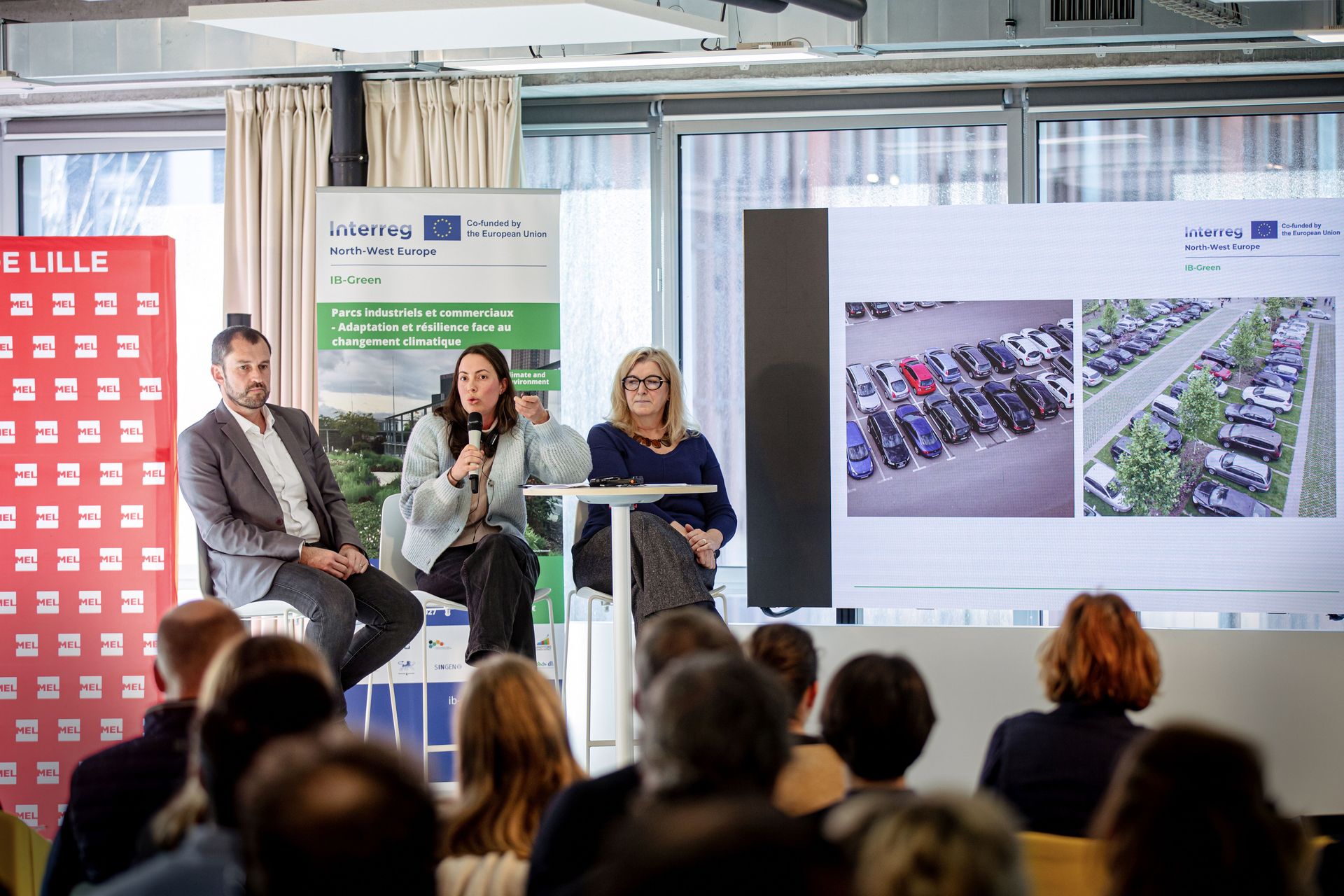 (c) Photo: Lille European Metropolis
(c) Photo: Lille European Metropolis
Singen’s approach is to offer consultations to companies to show them which realistic measures exist that can be implemented within businesses. Alena Hayer from the municipality of Singen Hohentwiel stressed that it is important to make the point that climate adaptation is an investment in the future of companies instead of a burden, since studies show for example that heat stress decreases productivity within companies.
"In the roundtables we offer for companies in Singen, we try to emphasize the opportunities that small investments can make. (....) We try to make companies understand that climate adaptation is an investment for them and for the future." - Alena Hayer, Municipality of Singen Hohentwiel (Germany)
Louis-Philippe Blervacque from the company Auddice shared his business’ perspective and efforts to adapt to climate change: The company installed permeable grids for parking spaces so that the water does not run off, but can be absorbed into the ground. Further, the company has implemented a green roof and walls on its premises, combining this with photovoltaic panels on the roof. Marc de Nale, who is familiar to the perspective of companies from his PALME network, explained that in his eyes the kind of cooperation between companies and public authorities is very important: There should be an in-depth dialogue, where the municipalities assess how they can support businesses with climate adaptation.
Further, all IB-Green project partners presented their interim results and progress within the project as part of a poster session, where conference participants could ask them specific questions on their activities.
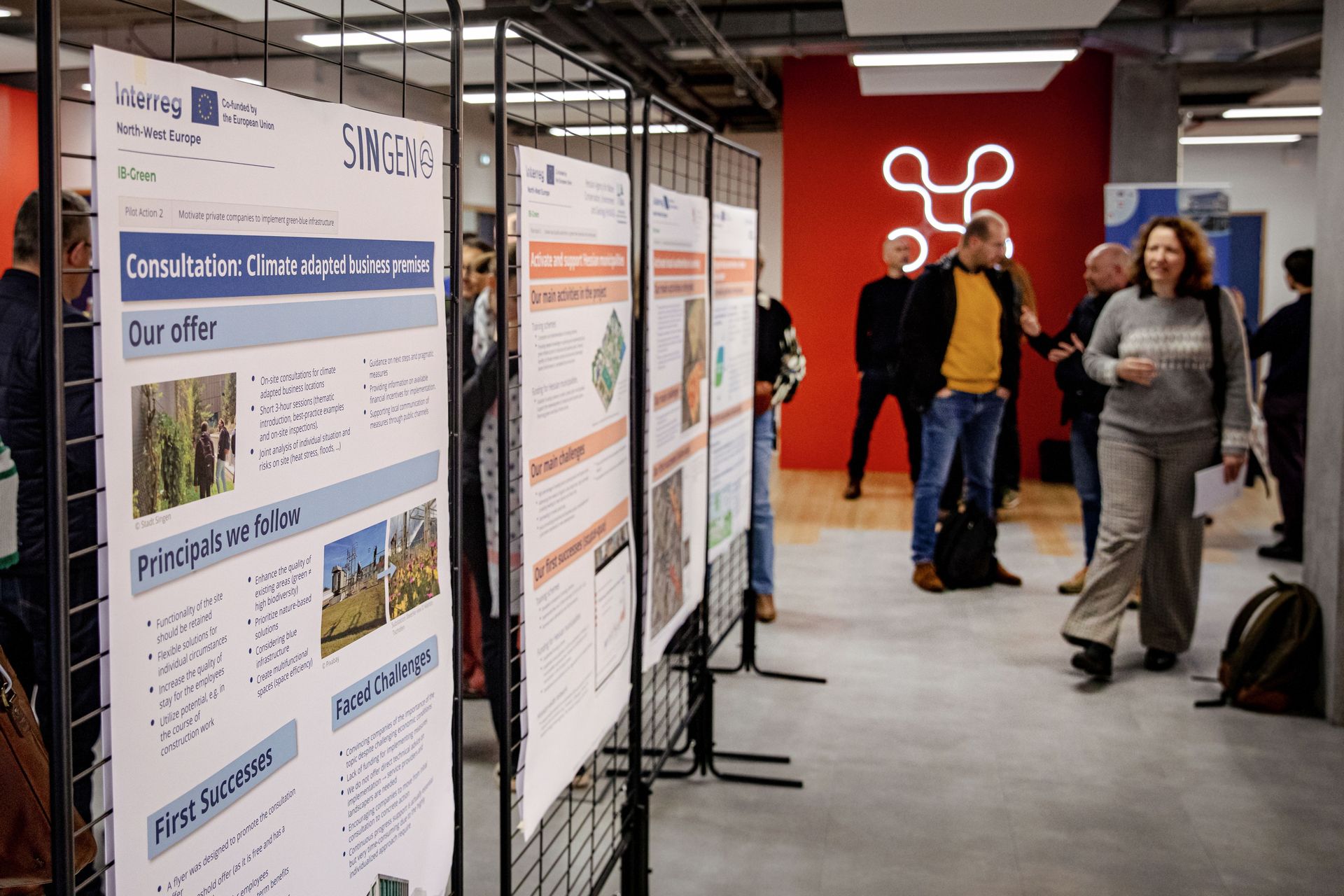 (c) Photo: Lille European Metropolis
(c) Photo: Lille European Metropolis
In the afternoon of the conference, companies had the chance to take part in a “climate adaptation fresco”, where the focus was to go deeper into specific business cases for adaptation measures. Meanwhile, the IB-Green project partners went on a site visit of the Haute-Borne Business District. This business park was designed with climate adaptation in mind: For instance, for the rainwater management, there is ditches to counter strong rainfall. Additionally, the business park can be accessed comfortably by bike as well as by foot.
(c) Photos: Climate Alliance
On the day following the midterm conference, the project partners met for a short session to discuss the sustainability of the IB-Green project’s results. In particular, the idea is to transfer the knowledge gathered in this project to local authorities and business park managers - while the project is still running - through a number of training sessions.
(c) Photos: Climate Alliance
